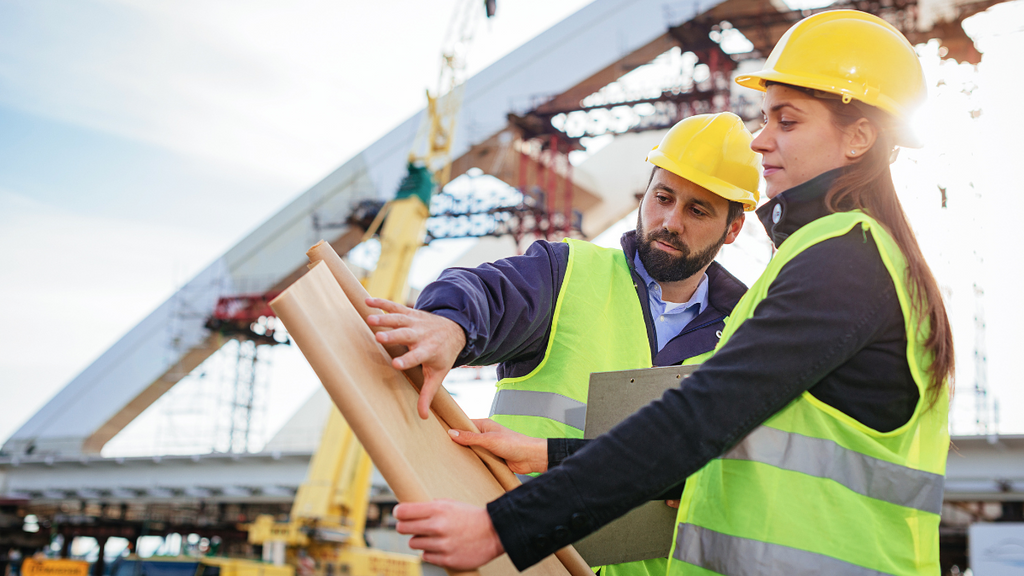6 Simple Techniques For Geotheta
Table of Contents5 Simple Techniques For GeothetaRumored Buzz on GeothetaNot known Incorrect Statements About Geotheta The 7-Minute Rule for GeothetaSome Ideas on Geotheta You Should Know

They carry out site investigations, collect samples, carry out lab tests, and evaluate data to assess the suitability of the ground for building jobs - Geotechnical Engineers. Based upon their searchings for, geotechnical engineers give referrals for foundation style, slope stability, preserving structures, and mitigation of geotechnical threats. They work together with other experts, such as designers, structural engineers, and building and construction teams, to ensure that geotechnical considerations are incorporated into the general project layout and execution
By analyzing the habits and residential properties of soil and rock, they can identify prospective geotechnical threats such as landslides, dirt settlement, or incline instability. Their proficiency aids protect against failings or accidents that can threaten lives and building. Below are some detailed responsibilities and responsibilities of a geotechnical engineer: Site Examination: Geotechnical engineers conduct website examinations to gather information on subsurface problems.
They analyze the information to recognize the properties and behavior of the dirt and rock, including their toughness, leaks in the structure, compaction qualities, and groundwater conditions. Geotechnical Analysis and Layout: Geotechnical engineers evaluate the data accumulated during site investigations to analyze the security and viability of the website for building and construction projects. They perform geotechnical computations and modeling to review aspects such as bearing capability, settlement, slope stability, side planet stress, and groundwater flow.
Indicators on Geotheta You Should Know
Structure Style: Geotechnical designers play a critical function in developing foundations that can safely support the designated structure. They assess the dirt problems and load needs to identify the appropriate structure kind, such as shallow structures (e.g., grounds), deep foundations (e.g (https://allmyfaves.com/geotheta?tab=Geotheta)., piles), or specialized methods like dirt enhancement. They consider aspects such as settlement limits, birthing capability, and soil-structure communication to create optimal structure designs
They evaluate building strategies, screen site tasks, and carry out area assessments to verify that the layout referrals are followed. If unforeseen geotechnical issues develop, they assess the scenario and supply referrals for remediation or adjustments to the style. Danger Assessment and Mitigation: Geotechnical designers analyze geotechnical threats and threats connected with the task site, such as landslides, liquefaction, or soil disintegration.

Cooperation and Communication: Geotechnical engineers work carefully with various other specialists involved in a task, such as architects, architectural engineers, and building groups. Efficient communication and partnership are important to integrate geotechnical factors to consider into the overall task style and construction procedure. Geotechnical engineers supply technological expertise, response queries, and guarantee that geotechnical needs are met.
Some Known Details About Geotheta
Right here are some kinds of geotechnical engineers: Foundation Engineer: Foundation designers specialize in creating and evaluating foundations for frameworks. They evaluate the soil problems, lots needs, and site features to figure out one of the most appropriate foundation kind and design, such as shallow foundations, deep structures, or specialized strategies like pile structures.
They evaluate the aspects affecting incline stability, such as soil homes, groundwater conditions, and slope geometry, and establish strategies to protect against slope failures and minimize dangers. Quake Designer: Earthquake engineers focus on analyzing and designing structures to withstand seismic pressures. They evaluate the seismic threat of a website, examine dirt liquefaction capacity, and create seismic design standards to ensure the safety and security and durability of frameworks throughout quakes.
They do area testing, accumulate samples, and analyze the gathered information to identify the soil homes, geologic formations, and groundwater problems at a site. Geotechnical Instrumentation Designer: Geotechnical instrumentation engineers concentrate on monitoring and gauging the actions of soil, rock, and structures. They install and maintain instrumentation systems that keep an eye on aspects such as soil settlement, groundwater degrees, slope movements, and structural displacements to evaluate efficiency and provide very early warnings of prospective issues.
See This Report about Geotheta
They perform tests such as triaxial tests, combination examinations, straight shear tests, and permeability examinations to collect information for geotechnical evaluation and style. Geosynthetics Engineer: Geosynthetics engineers specialize in the layout and application of geosynthetic materials, such as geotextiles, geogrids, and geomembranes. They use these materials to improve dirt stability, reinforce inclines, supply drainage services, and control erosion.
They have a tendency to be investigative people, which means they're intellectual, reflective, and inquisitive. They wonder, methodical, sensible, logical, and rational. A few of them are also social, implying they're kind, generous, participating, patient, caring, useful, compassionate, sensible, and pleasant. Does this seem like you? Take our complimentary career test to discover out if geotechnical designer is just one of your leading occupation matches.
In the workplace atmosphere, geotechnical designers use specialized software devices to carry out calculations, create layouts, and assess information. They prepare reports, testimonial job specs, interact with customers and team participants, and coordinate task activities. The office setting supplies a helpful environment for research, analysis, and collaboration with other professionals entailed in the task.
Geotheta Fundamentals Explained
They regularly go to job sites to conduct site examinations, assess geotechnical problems, and collect information for analysis. These brows through include traveling to different places, often in remote or difficult surfaces. Geotechnical designers might execute dirt sampling, conduct tests, and display construction activities to ensure that the geotechnical facets of the project are being applied correctly.
Geotechnical designers additionally work in specialized geotechnical research laboratories. Geotechnical research laboratory engineers function extensively in these environments, taking care of screening equipment, operating tools, and tape-recording data.